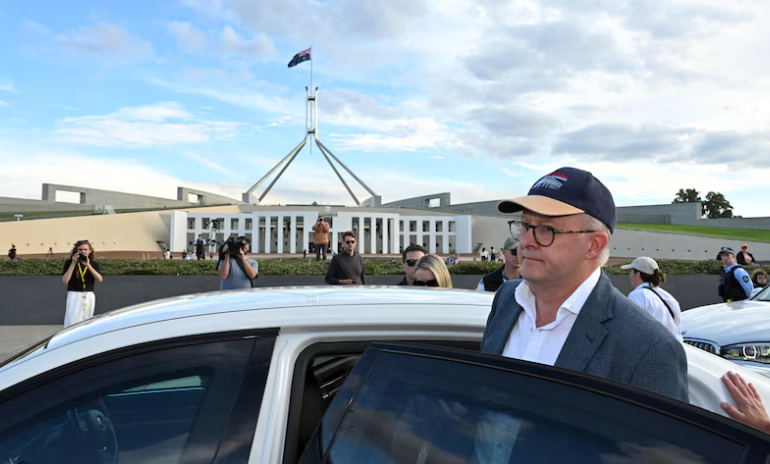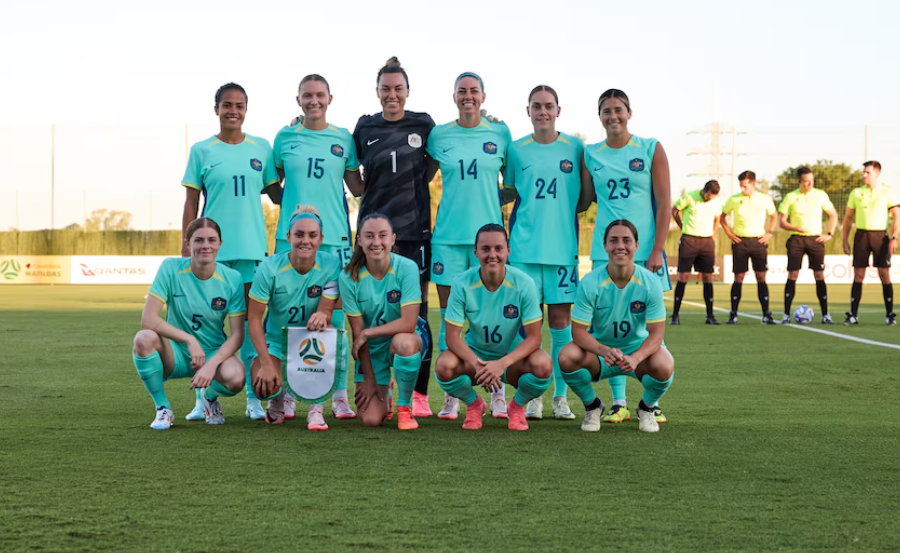While the Albanese government is focused on the upcoming budget, a series of crises shift the public’s focus

At this point in the lead-up to last year’s budget, the political focus was all about … the budget.
For weeks, debate centred around cost-of-living relief, a backbench call for action on JobSeeker, and the long-running chase for a surplus. The government was able to shape expectations and drip-feed announcements.
This year, with less than two weeks to go until the budget, the government finds itself struggling for clear air to even flag its plans. Instead, it’s responding to crises beyond its control, with varying degrees of success.
Prime Minister Anthony Albanese was sure-footed in his response to the mass stabbing at Bondi Junction shopping centre, the alleged terrorist attack at a church in Wakeley, and the subsequent war with social media giants over the spread of extremist content.
This week, the prime minister looks less confident.
Government ‘struggling to explain’
A confronting image of a 73-year-old woman allegedly bashed by a former immigration detainee during a violent home invasion intensified pressure on Labor over an issue that became a political nightmare after last year’s High Court ruling.
The government is still struggling to explain how the former detainees are being monitored, and why the accused apparently had his ankle bracelet removed.
When Treasurer Jim Chalmers popped up on the Today Show yesterday to spruik a major pre-budget speech, he fielded a barrage of questions over the case. At least he fronted up, which is more than can be said for the Home Affairs and Immigration ministers, who are keeping low profiles.
An even bigger issue, understandably seizing national attention, is the ongoing problem of gender-based violence and this year’s worsening toll of female victims.
Albanese showed compassion in turning up to Sunday’s rally, marching in solidarity, and listening to the calls for change. He then misjudged the moment with the microphone.
Yesterday he was still facing questions over his clumsy decision to plough on with a defensive speech to the crowd, while the protest’s organiser (a victim survivor herself) stood beside him in tears.
At least by mid-week the prime minister was able to produce some concrete new steps to help tackle the problem, after assembling a special National Cabinet virtual meeting.
The centrepiece commitment of $925m in federal funding over five years for women fleeing violence had been in the works before the events of recent weeks. It’s one of the few budget measures the government has been able to bring forward for a well-timed announcement.
Most other pre-budget announcements have been kept on ice, given the likelihood they would struggle for any attention right now.
Most, that is, except for the steady roll-out of Future Made in Australia announcements, which look set to continue at a steady pace between now and next year’s election.
Government backs quantum technology
This week’s latest instalment involves nearly a billion dollars in funding from the Commonwealth and Queensland governments to build the world’s first commercially useful quantum computer in Brisbane.
For the uninitiated, these enormous computers carry the promise of solving all manner of diabolical problems in all sorts of fields, from climate change, to defence, agriculture and medicine.
It’s a huge sum of taxpayers’ money for one company, PsiQuantum, prompting questions about the selection process.
Australia’s chief scientist, Cathy Foley, who advised the government on the investment, assured everything was above board. She told the Australian Financial Review the company was “a country mile” ahead of competitors and defended the need for Australia to be in the quantum computing race.
Part of the Commonwealth’s investment also involves taking an equity stake in PsiQuantum, and while the detail hasn’t been revealed for commercial-in-confidence reasons, government insiders are confident they will achieve a “double digit” return.
The Albanese government is unmoved by the concerns and criticisms from various economists about the subsidies and incentives involved in its plan to re-shape the Australian economy.
In his speech yesterday, Jim Chalmers made the case for the substantial government interventions on both economic and security grounds. Indeed, national security has become one of the government’s main justifications for tipping billions of dollars into chosen companies.
The treasurer laid out some guardrails to avoid the perception this will be a free-for-all of government spending being sprayed to all corners of the economy.
Investments will only be made in competitive and productive industries that will help in the net-zero transition, protect Australia’s national security and resilience, and deliver value for money.
These are all worthy goals, but how exactly projects are being selected against these objectives remains unclear.
‘Labor can’t afford to appear reckless’
Productivity Commissioner Danielle Wood has called for independent oversight, saying that “otherwise we risk a giant pork-barrelling scheme”.
We’re yet to see a commitment to such oversight.
For the government, however, there’s no turning back on this plan. It’s all in and strongly believes this is both smart economics and smart politics.
As one senior cabinet minister put it, voters won’t care about editorials from economists, but they will welcome investments in local manufacturing.
Perhaps.
But Labor also can’t afford to appear reckless with spending, particularly when inflation is yet to be brought under control.
Both the prime minister and treasurer will need to keep making the case for their Future Made in Australia plan.
And they will need some clear air.
SOURCE: ABCNEWS





